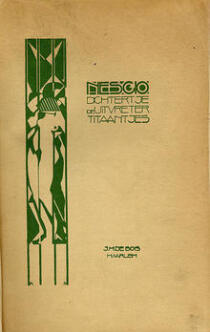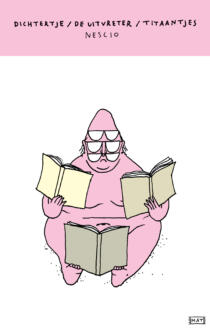This story does not take place in the vast fields that Streuvels so often described but in the seclusion of an oast house, the place where chicory roots were dried. While the young farmer and his two youngest labourers are away seeking fun in the village, three labourers remain behind in the oast house, talking and ruminating on the dreams that will never come to fruition due to the harsh realities of their lives. They are the older workers who take the evening and night shifts: the elderly Blomme, the chief drier Hutsebolle and the fool Fliepo.
The tramp Knorre ends up in the oast house and there dies in his sleep. The three workers realise that he had had the freedom to go his own way and enjoy his life, whereas they, slaving away, can never catch up with their dreams. Knorre’s death forces them to search their own consciences.
Streuvels constructs his story masterfully with a unity of time, place and action that mimics classical theatre. The oast house is, indeed, the stage for a play about the human condition. The author emphasises this from the beginning: “The barn with its double doors wide open like a stage, where, in the yawning darkness, a play is performed by ragged men, at a great pace”.
As the story unfolds, the characters become aware of the essence of human existence, that it is characterised by loneliness and transience, longing and disillusion, injustice and poverty, fate and want. A magisterial intermezzo involving a lively play by the mice and the lethal intervention of the owl functions as a mirror to this comédie humaine: a play within a play and an allegory for the game that fate plays with us.
Streuvels gives his novella a pertinent motto: “But I am a worm and not a man, / scorned by everyone, despised by the people” (Psalm 22.7). The book testifies to great sympathy with the labourers, who arrive at a new insight into their insignificance and oppression. This awareness makes them suffer and so they fall back on the past and dreams and thoughts about what may come. The oast house is like the threshold between life and death, a place where people are aware of the past and present but also of the future, and of their responsibility for their actions.
The story is bathed in a magical realism atmosphere that is enhanced by the contrasts between indoors and outdoors, light and darkness, work and pleasure, reflection and gratification, dreams and reality. And through the use of internal monologues, since the men cannot really talk about it with each other:
Each of them will keep their experience hidden; carry it with them, as though sealed behind a wall. Whatever they utter in conversation is just superficial musings and meaningless details; they can tell each other nothing of that which is buried in the deeper layers of their subconscious…






